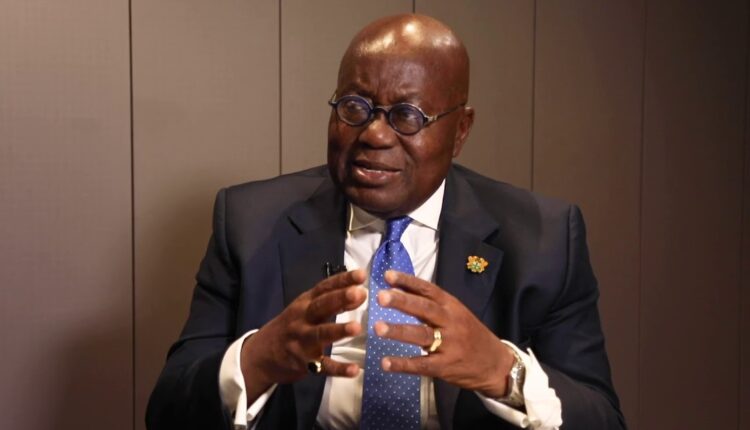President Nana Akufo-Addo has revealed plans by the government to set up a vaccine manufacturing plant in Ghana within the next two years.
Government first hinted at the plans at the height of the COVID-19 pandemic, and President Akufo-Addo is taking steps to ensure it comes to fruition sooner.
At a COVID-19 forum in Germany, he said: “In the short term, that is in two years. Our goal is to set up one domestic vaccine manufacturing plant to fill, finish and package COVID-19 and other vaccines”.
President Akufo-Addo reiterated his resolve to implement measures “to strengthen research and development for vaccine production” locally.
Ghana was a recipient of a EUR 7.5 million European Commission grant in December 2021, as President Akufo-Addo and European Investment Bank (EIB) leaders discussed strengthening health and economic resilience in Africa, local vaccine manufacturing and private sector support.
The recent announcement by President Akufo-Addo also follows a partnership with German biotechnology company, BioNTech SE, to fill, finish, and package BioNTech mRNA vaccines in Africa as a first step in the chain of domestic vaccine production to improve vaccine supply in Africa.
Rwanda and Senegal are the other African countries included in the project.
This was made known at a high-level meeting in Marburg, Germany, on Wednesday, 16th February 2022, where President Akufo-Addo, together with Presidents Macky Sall and Paul Kagame of the Republics of Senegal and Rwanda respectively, witnessed the presentation of a BioNtech modular production facility solution for the production of mRNA vaccines in Africa.
The event was also attended by President Ursula von der Leyen of the European Commission and Tedros Adhanom Ghebreyesus, Director-General of the World Health Organization.
Together with BioNTech’s CEO and Co-Founders Prof. Ugur Sahin and CMO, Prof. Özlem Türeci, and COO Dr Sierk Poetting, they jointly discussed the infrastructural, regulatory and technological requirements to establish an end-to-end manufacturing network for mRNA-based vaccines in Africa.
BioNTech SE has introduced this approach to establish scalable vaccine production by delivering turnkey mRNA manufacturing facilities based on a container solution. At a high-level meeting at BioNTech’s manufacturing facility in Marburg, and at the invitation of the kENUP Foundation, the company presented the container solution named “BioNTainer” to key partners of its efforts in Africa.
Describing the modular production facility as a “BioNTainer”, it will consist of one drug substance and one drug product module, each built of six ISO sized containers. They are clean rooms that BioNTech equips with state-of-the-art semi-automated manufacturing solutions.
Each module requires 800 sqm of space and offers an estimated capacity of several hundred of million doses of mRNA-based vaccines depending on the specific vaccine.
The BioNTainer will be equipped to manufacture a range of mRNA-based approved or authorized vaccines targeted to the needs of people in African Union member states, like BioNTech’s COVID-19 vaccine and its malaria and tuberculosis vaccines if they are successfully developed and approved.
The first BioNTainer is expected to be shipped to the African Union in mid-2022. BioNTech expects to ship BioNTainers to Rwanda and Senegal in close alignment with the respective country and the African Union. BioNTech will be responsible for the delivery and set-up of the modules, while local authorities and governments will ensure the needed infrastructure.
Ghana will support manufacturing with fill-and-finish capacities.
In cooperation with WHO, Africa CDC/AMA, and the European Union, BioNTech is supporting, identifying and setting up the necessary regulatory framework.
BioNTech will initially staff, own and operate the facilities to support the safe and rapid initiation of the production of mRNA-based vaccine doses. In the longer term, the company plans to transfer manufacturing capacities and the know-how to local partners to enable sustainable production of mRNA vaccines in Africa. Vaccines manufactured in these facilities are expected to be dedicated to domestic use and exported to other member states of the African Union at a not-for-profit price.
Pan-African Project
Speaking at the event, President Akufo-Addo indicated that the meeting heralds an essential step in end-to-end vaccine manufacturing in Africa.
“This pan-African project fits very well into Ghana’s roadmap for vaccine development and manufacturing, developed by the Vaccine Manufacturing Committee, which I constituted nearly a year ago,” he said.
The President added, “We are willing to work together with our counterparts in Rwanda and Senegal to fill, finish, and package BioNTech mRNA vaccines as a first step in the chain of domestic vaccine production.”
He told the gathering that Ghana’s Food and Drugs Authority (FDA), the principal Ghanaian regulatory agency, which is currently at WHO Maturity Level 3 and being upgraded to Maturity Level 4, will be readily available to work closely with regulatory bodies from the two (2) partner countries, to enhance the regulatory capacities for domestic vaccine development and manufacturing in Africa.
Moreover, with Ghana’s growing pharmaceutical industry, which already has broad footprints in West Africa, President Akufo-Addo added that backed by the nation’s industrious research institutions, strong political will and commitment, fueled by lessons learned from the COVID-19 pandemic, he is of the utmost belief that Ghana is prepared for this project.
“We have gleaned a lot from this pandemic, and we are determined to enhance our ability to handle more efficiently any future outbreaks, including building domestic capacity for vaccine production. We are ready to contribute and be part of the manufacturing of mRNA COVID-19, Malaria and TB vaccines from drug substances through drug products to Fill, Finish and Package. Ghana is raring to go,” he added.



